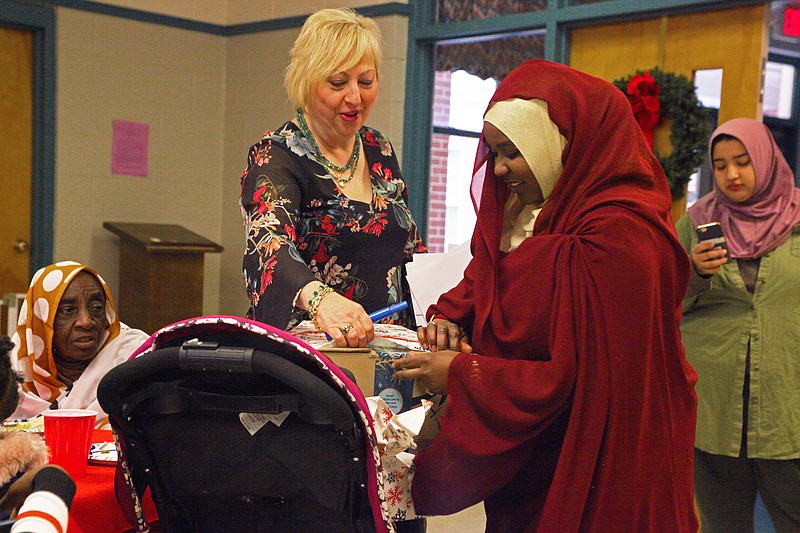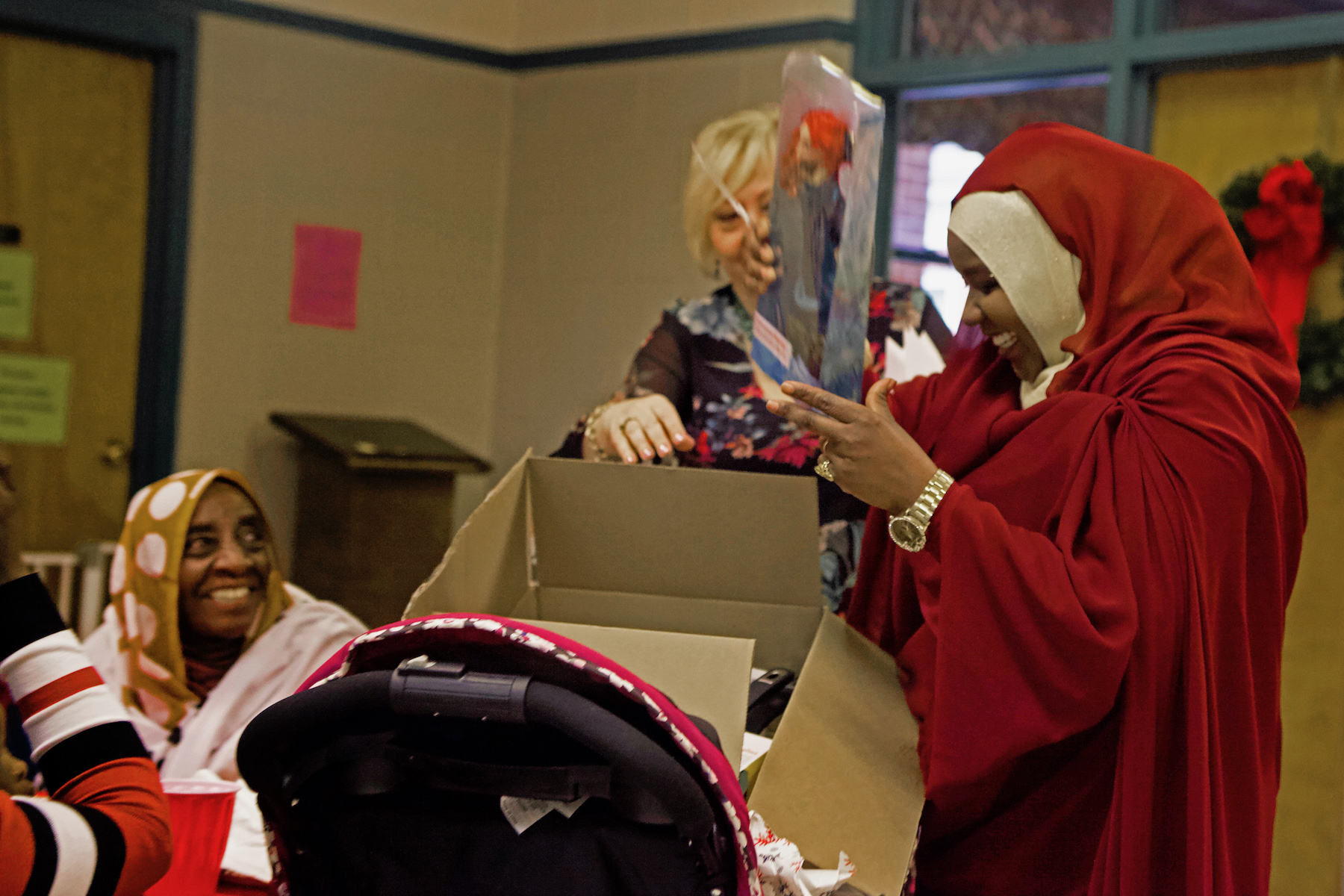With a plastic knife, Randa Iteim punctured the packing tape of the box, opening it to reveal the gifts inside. The 33-year-old raised the wooden spoon and pot above her head as the dozens of women gathered at Northminster Presbyterian Church on Friday afternoon cheered.
Iteim arrived in Chattanooga three years ago as a refugee after fleeing Sudan with her family. She is working to become a nurse, like she was before. In Tennessee, her family has learned how to navigate the local grocery stores, speak English and, as it comes every year, celebrate Christmas.
In her culture, large gatherings of friends and family are common. In America, those kinds of events are rare, which is why she always looks forward to the Christmas party with Bridge Refugee Services, Iteim said.
"This kind of party, we wait for it," she said.
The annual Christmas celebration is part of Bridge's mission to help refugees join the local community, said Marina Peshterianu, associate director. Along with helping refugees navigate daily life, such as doctor's appointments, Bridge staff and volunteers help refugees take part in local culture.
"They came here because they had to flee," Peshterianu said. "They have to build a life [here] and help their children build a life because they think of themselves as American."
The idea to have a Christmas party, as well as a Thanksgiving event, came from refugees and volunteers, Peshterianu said. Local churches, including both conservative and liberal denominations, work as volunteers during the year and brought gifts for the party. On Friday, the group members ate together before their gift exchange.
For Ana Sonia Badoya, holiday parties in America, and parties in general here, are more relaxed than what she experienced in her native Colombia. She is used to more dancing, she said through an interpreter. Being away from loved ones at this time of year is difficult.
Other refugees, from countries around the world, said those first years away from friends and family are especially hard, but things get easier as new communities form.
Bridge settled more than 80 refugees in the past year, Peshterianu said. The nonprofit works with clients for five years after they arrive. Since 2013, the foreign-born population in Chattanooga increased by 68% to nearly 12,800 people. But the future of refugee resettlement in Chattanooga, and the state, is at risk.
In September, President Donald Trump issued an executive order asking for greater local involvement in refugee resettlement. With the order, states and local governments have to sign on to continue accepting refugees. Gov. Bill Lee has yet to make a decision about whether Tennessee will remain in the program. The governor's office did not respond to a request for comment.
The United States is already accepting few refugees than years and decades ago. The Trump administration announced in September that the country would accept 18,000 refugees next year, the lowest total in U.S. history and a fraction of the more than 231,000 people accepted in 1980. In November, three immigration groups sued the administration over the order.
The threat of the state and Hamilton County no longer welcoming refugees has local leaders organizing. More than 30 local faith leaders are sending a letter of support for refugees to Lee, County Mayor Jim Coppinger and Chattanooga Mayor Andy Berke next week.
"Our investment in [refugees] as they have become part of the fabric of our country has paid returns that have enriched us intellectually, culturally, and financially," the letter reads.
The Rev. Laura Becker, pastor at Northminster Presbyterian who signed the letter, said she wants people to know the future of supporting refugees in Tennessee is in the governor's hands.
"Not only do we have a moral obligation as a community and speaking from the perspective of faith to welcome the stranger and be a source of enacting compassion for those that are fleeing persecution and violence," Becker said, "I think it's part of what makes us great as a country and I think, particularly as Christians, it's rooted in how we are to treat our neighbor."
Peshterianu said Bridge relies on Chattanooga's faith community for support. They are the people who step up to help refugees at times when Bridge's small staff cannot. They help make refugees feel at home, she said.
"There is no refugee resettlement without community acceptance," Peshterianu said.
From the reporter
I became a journalist to help people see people as people. But highlighting the human side of every policy decision, and how it is affecting your community, takes time as well as support from readers. If you believe in telling the stories of people in your community, please subscribe to the Times Free Press today. Contact me at wmassey@timesfreepress.com or 423-757-6249. Find me on Twitter at @News4Mass.

